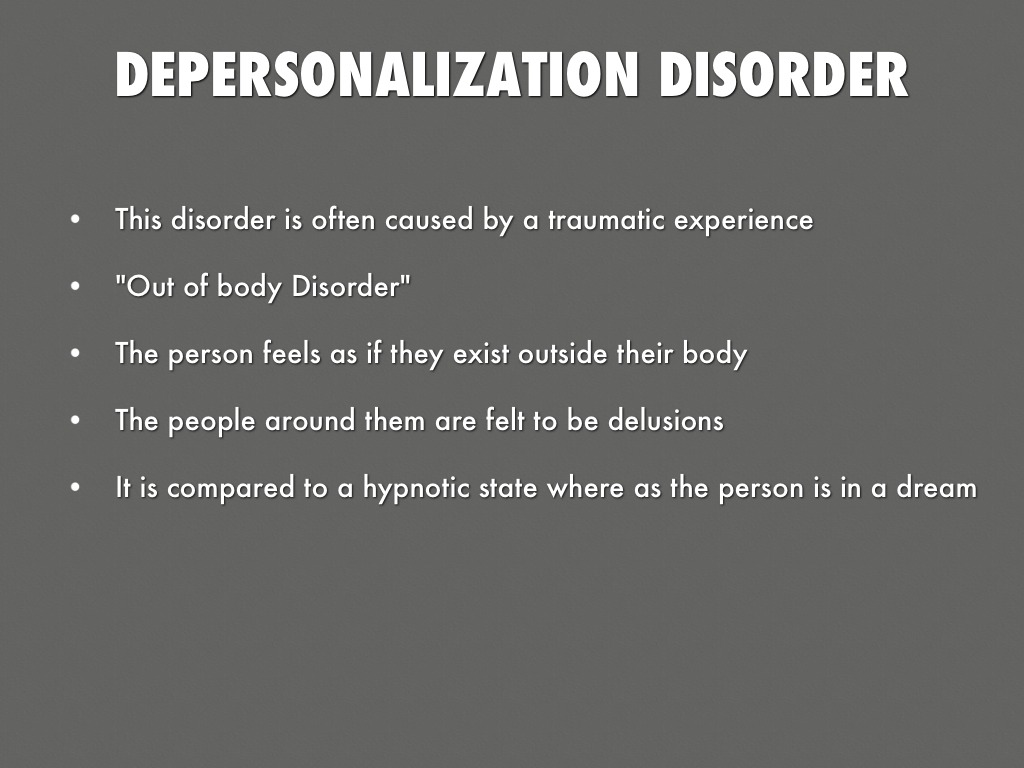
If you have thoughts about taking your life, it's important you ask someone for help. There's no specific medicine to treat dissociation, but medicines like antidepressants may be prescribed to treat associated conditions like depression, anxiety and panic attacks. The aim of talking therapies such as counselling is to help you cope with the underlying cause of your symptoms, and to learn and practise techniques to manage the periods of feeling disconnected. Talking therapies are often recommended for dissociative disorders.
#Depersonalization derealization disorder full
Many people with a dissociative disorder make a full recovery with treatment and support. It's important to be honest about your symptoms and not to feel ashamed or embarrassed, so you can receive the help and support you need. questions about your thoughts, feelings, behaviour and your symptoms.a physical examination to rule out things like a head injury or drug or alcohol misuse.The specialist who carries out your assessment should have a good understanding of dissociative disorders. They may also refer you to a mental health specialist for a full assessment. Diagnosing dissociative disordersĪ GP may examine you and do some tests to check if another illness might be the cause of your symptoms. It becomes a problem when the environment is no longer traumatic but the person still acts and lives as if it is, and has not dealt with or processed the event. It's a form of denial, as if "this is not happening to me". Switching off from reality is a normal defence mechanism that helps the person cope during a traumatic time. Some people dissociate after experiencing war, kidnapping or even an invasive medical procedure. Someone with a dissociative disorder may have experienced physical, sexual or emotional abuse during childhood. They may be related to a previous traumatic experience, or a tendency to develop more physical than psychological symptoms when stressed or distressed. The causes of dissociative disorders are not well understood. They may also have problems sleeping (insomnia). Someone with a dissociative disorder may also have other mental health conditions, such as:
/GettyImages-533766329-5703ed935f9b581408b084ed.jpg)

forgetting about certain time periods, events and personal informationĭissociation is a way the mind copes with too much stress.feeling disconnected from yourself and the world around you.Symptoms of dissociative disorder can vary but may include: Some dissociative disorders are very shortlived, perhaps following a traumatic life event, and resolve on their own over a matter of weeks or months. Dissociative disorders are a range of conditions that can cause physical and psychological problems.


 0 kommentar(er)
0 kommentar(er)
